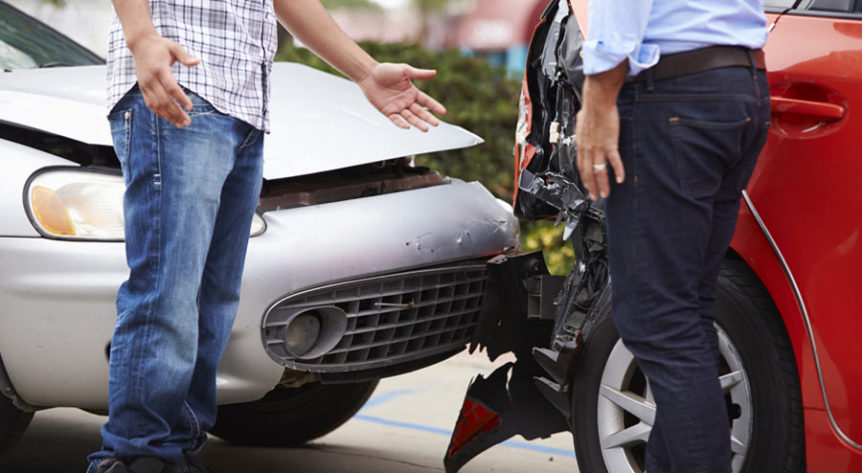Car accidents are no fun matter. Even the smallest collision can cause havoc in your life, whether it’s minor injuries or a hard hit to your insurance plan. Then there’s the expensive mechanics in your life to fix your car.
They’re just a headache. Unfortunately, car accidents can’t always be helped. With all this stress on your shoulders after an accident, you want what you can control to go smoothly.
That’s why it’s important to know the steps you should take after an accident before you find yourself in one. All these steps can help speed up the process later on down the road.
We’ll go over what to do after a car accident. Memorize these steps so you’ll be prepared in one of these events.
The Steps You Should Take after a Car Accident
Step # 1 Stay at the Scene of the Car Accident
Never, ever leave the scene of a car accident. It’s illegal and will cost you big time, even if you weren’t at fault for the car accident in the first place.
The smallest damage to your car is still damage due to a collision with another vehicle. It’s important to stop and find a solution to the problem.
Leaving the scene of an accident is referred to as a “hit and run.” These laws are different depending on the state you reside in.
But the general rule is that, if you leave the scene of an accident that caused damage to someone else’s property, you will be charged with a misdemeanor.
Also, if you leave the scene of an accident and someone was injured, you can be charged with a felony offense.
Plus, it’s just common courtesy.
Step # 2 Check Everyone Involved for any Injuries
First, you should check yourself for any injuries. Like they say on airplanes, you need to assist yourself first no matter what. If you’re hurt, you’re no help to anyone else.
Once you’ve checked and determined that you’re okay, you need to check on any passengers in your vehicle as well as the passengers in the other vehicle.
Anyone who’s not seriously hurt from the accident, including you, needs to be out of the respective vehicles and moved to the side of the road.
If your car is working properly, you’ll want to pull it to the side and out of the road too. If you can’t drive it out of the way but the hazards are working, just turn the hazards on. It can help prevent another collision with any other vehicles that might pass by.
If anyone is injured, you need to call 911. This will bring both an ambulance to help those hurt and the police to make a report of the incident.
Step # 3 Notify the Police

You need to call the police to make an official report about the accident. If the accident was minor, you and the others involved in the accident can meet up at the police station to make a report instead of waiting.
In some states, you’re required to notify the police otherwise you’ve broken the law.
The police report will document everything about the car accident in a report. You should always be honest with the police officers and answer any questions they might have about the accident. If you’re not sure or don’t remember, let them know.
The one thing you shouldn’t say to the others involved or to the police officer is that the car accident was your fault.
Everything’s happened so fast, that you can’t be sure of who is at fault. The police officers can determine that from witnesses and the facts of the accident—not to mention that, for any car insurance company you may go through, you’re under contractual obligation to not admit liability to any car accident.
To be on the safe side, you should ask the officer the best way to receive a copy of their report.
When making a claim through your insurance company or another, you may be required to produce a copy of the police report.
Step # 4 Gather the Driver of the Other Car’s Insurance Information
You and the other driver need to exchange your insurance information. You’ll need to exchange names, phone numbers, insurance company and their policy number, license plate numbers, the location of the accident, and make and model (and even color) of the other car.
Your insurance company will want all this information and so will their car insurance company.
Step # 5 Gather Other Information about the Car Accident
After you’ve obtained all the important information from the other driver, you’ll need to gather your own information on the car accident itself.
As stated earlier, you’re going to want to get a copy of the police report. Furthermore, you’ll want the officer’s name and badge number for your own peace of mind.
Next, you should talk to any witnesses of the car accident. Get their take on the incident and get all their contact information.
If it’s possible, take photos of the accident. This gives both insurance companies an idea of the damage done by the collision. If you’ve received any injuries from the accident, even if they seem minor, you should photograph those too for evidence.
Step # 6 File an Insurance Claim
After everything is said and done, it’s time to file your insurance claim. Most insurance policies require you to report the accident immediately.
If your insurance policy includes medical pay and you’ve been injured, get all the information you need to move forward with that.
Conclusion
Being involved in a car accident is stressful for everyone concerned. Gathering all the information you’ll need later on for your insurance claim at the scene of the accident will save you time and possibly save you from being blamed for an accident where you weren’t at fault.
